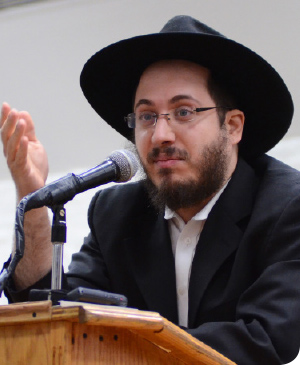Dear Reader sh’yichyeh,
In our previous article, we discussed the Torah’s view of a Jewish King. We explained that the main role of the Jewish king is to bring the nation closer to Hashem. In the words of Rambam (Melachim 4:10): “His purpose and intent shall be to elevate the true faith and fill the world with justice, destroying the power of the wicked and waging the wars of G-d.”
 In this article, we are going to discuss the uniqueness of the kings which are descendants of Dovid HaMelech, culminating with King Moshiach.
In this article, we are going to discuss the uniqueness of the kings which are descendants of Dovid HaMelech, culminating with King Moshiach.
We all know that King Shaul was the king before Dovid HaMelech and that throughout history most the Jewish people – 10 of the 12 Shvatim – were ruled by Malchus Yisroel, kings from the tribe of Yosef. Notwithstanding that, there is a unique and inherent quality to Malchus Beis Dovid.
The Rambam writes (Hilchos Melachim 1:8-9): “If a prophet appoints a king from any other tribe of Israel and that king follows the path of Torah and mitzvos and fights the wars of G-d, he is considered as a king, and all the commandments associated with the monarchy apply to him. Although the kingship was primarily given to David and one of his descendants will be serving as king, there is halachic legitimacy to the rule of other kings…
The Rebbe (Likkutei Sichos Vol. 28 pg. 109) explains that there are two types of Jewish kings. The first is a king who actively fulfills the duties that the Torah and the nation expect of him. He issues decrees, controls the land and army, and is recognized to be the one with the greatest power. The second type of king does not wield power with his actions, but by his character. His whole being radiates regal kingliness, and although he does not shoulder responsibilities of state, the Jewish nation sees in such a person the kingly qualities of righteousness, malchus, and humility.
The following two examples illustrate this idea of a person having an innate quality which defines him, even if certain behaviors normally associated with that quality are absent. A Kohen is born with his priestly status. It does not matter if and how many times he actually fulfills the service of the Kohen; his identity is that of a priest. Or, for example, a Jew does not attain his Jewishness by practicing Judaism. It is something that he receives the moments is his born. It is part of his essence regardless of his actions.
That is the essential difference between the Malchus Yisroel and Malchus Beis Dovid. For a king who belongs to the Malchus Yisroel, his status as king is not his essence and therefore will eventually fade away. For the kings of Malchus Beis Dovid, in contrast, this status is part of their very being and therefore it is eternal.
This is regarding all kings from Beis Dovid. In our next article, we will explain the unique qualities of the ultimate king, King Moshiach.
Rabbi Avtzon is the Rosh Yeshiva of Yeshivas Lubavitch Cincinnati and a well sought after speaker and lecturer. Recordings of his in-depth shiurim on Inyanei Geula u’Moshiach can be accessed at http://www.ylcrecording.com.